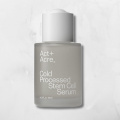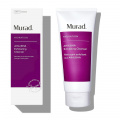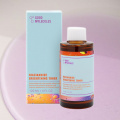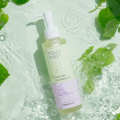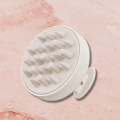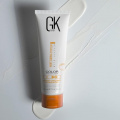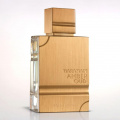DIY Castile Soap for Hair: Benefits, Uses, And More
Using castile soap for hair certainly has its own pros and cons. Learn what this natural vegan magic can do to your hair and how to use it in DIY shampoos.
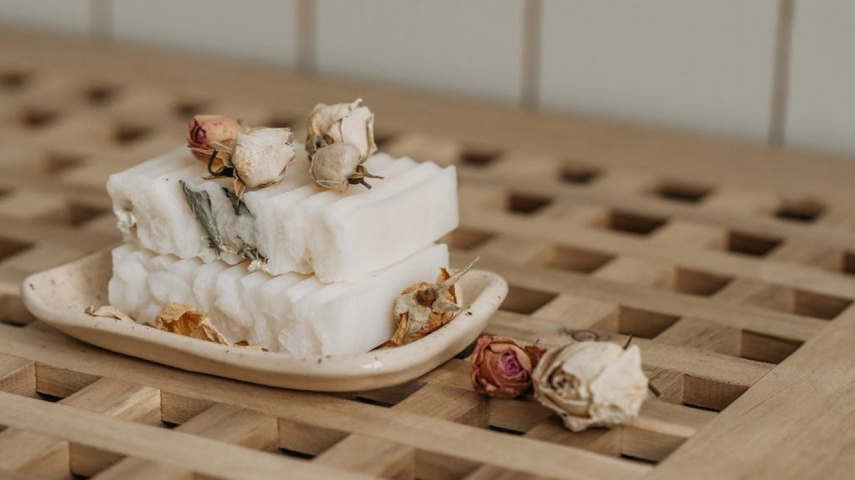
Castile soap for hair is an excellent option for people who are looking for an eco-friendly change in their hair care routine. This natural plant-based soap is a key ingredient in many DIY shampoo recipes. It's particularly great for people with sensitive scalps or those who find regular commercial shampoos a bit too harsh. But there's a twist – castile soap is quite unlike your usual shampoo or body wash. If you're not sure how to use it, don't worry, we're here to guide you on this ancient cleaning soap.
What Is Castile Soap?
Castile soap's roots trace all the way back to Castile, Spain, where it was born and originally made with olive oil. But nowadays, many have reimagined castile soap, and it's not just olive oil anymore. You can spot coconut, castor, almond, walnut, avocado, or even hemp oils. These oils help with saponification and give a good lather.
This castile soap is a great multi-tasker. It's not just for cleansing your body and hair. It's an all-purpose cleanser that you can count on for washing your clothes, cleaning up your home, utensils, and even giving your makeup brushes and sponges. Basically, having a bottle or bar of this stuff on hand might just kick a bunch of other products to the curb.
Castile soap is all about being gentle and safe, as long as you use it the right way. Also, dilution is the key here. Don't go dumping it on your skin or hair straight out of the bottle. These highly alkaline soaps must be well-diluted with water to make them feel less hard on the skin and scalp.
Benefits of Castile Soap for Hair

Firstly, let's see what makes castile soap for hair different from regular shampoos. Most shampoos you find on the store shelves are packed with chemicals and have a lower pH level. They contain things that stick around on your hair, giving it that shine or making it easier to handle. On the other hand, this traditional shampoo is like the minimalist of the shampoo world. It has a very high pH level and doesn't have a huge list of ingredients or chemicals. This paves the way for the following benefits.
1. It's Great for Sensitive Skin
Because castile soap is so stripped down when it comes to ingredients, it's a solid choice for people with sensitive skin. If you're someone who can't stand harsh chemicals or if you have allergies or sensitivities to ingredients commonly found in regular shampoos, then castile soap might just be the one for you.
2. Ample Hydration
Every castile soap has some kind of vegetable oil as its base. You can find castile soap made from various oils like hemp, coconut, olive, or neem which have nourishing properties. Plus, it's free from those sulfate ingredients that often strip your hair of moisture. Thus it can really help in keeping your scalp healthy, hydrated, and happy, which is ideal for good hair.
3. Treats Scalp Problems
The oil-based nature of castile soap, combined with that high pH level, makes it a good option for those dealing with itchy scalp conditions like dandruff or dermatitis. But if your scalp balance is already pretty normal, then it might not do much for you in terms of benefits.
4. Eco-Friendly Vibes
Another cool thing about castile soap is that it's made of organic ingredients and is super eco-friendly. It's biodegradable, which means it won't mess up the water supply when it eventually goes down the drain.
5. Vegan Soap
Another benefit is that it is an apt natural beauty product for vegans. Castile soap is manufactured entirely of vegetable fat rather than tallow, lard, or other animal fats.
Hair Type Considerations
Now, when it comes to hair types, castile soap might not be a great fit for all.
Castile Soap on Color-treated Hair
If you've got colored hair, then you must keep castile soap far away. It's all about that pH level again. Hair dye tends to stick around better when your hair's pH is on the lower side (1). As we've said, castile soap is way up on the high side of the pH scale. So, using it could potentially strip away all that lovely hair color you paid good money for.
Hair Texture
Apart from colored hair, it's a great fit for all sorts of hair types and textures - whether it's curly, wavy, or dead straight, it gets the job done. For people with dry, or curly hair, you might want to consider adding a regular deep conditioning routine to the mix. Especially, a conditioner with an acidic formulation (1).
Castile soap is more of a specialty product for sensitivities or specific scalp problems. However, for a lot of them, it can leave your hair feeling a little too wild and hard to manage. So use it with caution.
How to Use Castile Soap for Hair

Using Castile soap isn't quite the same as your regular shampoo routine. It's like a special cleansing ritual that needs some key rules to follow.
1. Dilute Your Shampoo
First off, Castile soap is potent stuff. Thus a little dab will do good. It's concentrated and can mess with your scalp's pH, so don't pour it all over your head. Grab a tablespoon of grated castile soap and mix it with at least 1 or 2 cups of purified water. Shake them until the soap is all melted. You can also tweak the ratio to fit your hair's needs but don't overdo it.
2. Apply on Roots
When you put this soap solution on your head, focus on the roots and scalp, not the tips of your hair. Castile soap can lead to tangles and knots, so be gentle. Don't pile it all up and start scrubbing as it can lead to heavy tangles.
3. Acidic Rinse
Now, here's a cool trick. Castile soap is all alkaline, so after you've worked it through your hair, hit it with an acidic rinse. You can dilute ¼ cup of lemon juice or 4 tablespoons of apple cider vinegar with 2 cups of water, and use that as your post-wash rinse. Give it a few minutes, then rinse your hair with plain water.
4. Moisturize Your Locks
Since the soap solution is slightly harsh it may lead to tangles. Hence, it is better to always follow up with a hydrating conditioner. Or, you can use some natural oils like coconut, jojoba, argan, avocado, or sweet almond oil to lock in that moisture.
If you wish to try some good homemade castile soap for your hair wash then we've got some vegan and cruelty-free recipes coming your way.
DIY Castile Soap Recipes for Healthy Thicker Hair
Kirks and Dr. Bronner are among the pioneering brands that have been offering castile soaps for well over a century. Also, crafting your own homemade shampoo isn't that difficult. It doesn't demand any fancy gadgets or an extensive kitchen endeavor. You won't even need to fire up the stove. Just grab a funnel to containers. If possible, find an old shampoo bottle that you can recycle or any container that can hold around 250 to 500 ml of liquid shampoo.
1. Basic Castile Soap Shampoo
Ingredients:
- 1/2 cup of strong, cooled chamomile or peppermint tea
- 1/2 cup of castile soap (either unscented or scented)
- 1/2 cup of cold water
- 10-15 drops of your favorite essential oil
Instructions:
- Start by pouring that chilled tea into your container. If you've got a funnel, this is where it really comes in handy.
- Next up, dilute the castile soap with water.
- Now take the funnel out and start dropping in those essential oils, one by one.
- You can pick from lavender, rosemary, lime, or tea tree oils if you're battling dandruff (2).
- Pop the shampoo cap back on, and give it all a good shake to mix all the ingredients.
2. Nourishing Coconut Milk Shampoo
Coconut milk as well as oil contains lauric acid which has nourishing properties and also helps reduce dandruff and improves overall hair health (3).
Ingredients
- 50ml coconut milk
- 60ml liquid unscented castile soap
- 5 drops essential oil (optional)
- 1 teaspoon almond or olive oil (optional, for dry hair)
Instructions
- Pour in coconut milk and liquid soap (unscented) into a container.
- If you like, drop in 5 to 6 drops of essential oil.
- For that extra moisture, toss in some olive or almond oil.
- Shake that bottle well and pop it in the fridge for a good shelf life.
But before you hop in the shower, remember these homemade natural shampoos don't have any preservatives. So try to finish them up within one or two weeks for the best results.
Things to Know Before Shampooing with Castile Soap
Though castile soap is a budget-friendly all-purpose tool, there are some things you should keep in mind.
- As it's true soap, it can have a higher pH (alkaline). If you're using it for a quick dishwasher, no worries. But if you're thinking about long showers, keep in mind that prolonged skin contact might make your skin feel dry.
- Also, it doesn't go great with hard water. The chemistry behind castile soap and hard water is that it can leave a white chalky residue on your shower tiles and tubs. During this period of time, it may turn a bit gray as dirt and soap scum settle in. Thus if you've got hard water, consider getting a water softener.
Now, let's see the side effects of using castile soap for hair.
- If you've dyed or colored your hair, then it's a no-go for castile soap. It's a bit too alkaline and might strip away those beautiful colors.
- Mixing castile soap with vinegar is not a great combo. They react, like that baking soda and vinegar volcano from your elementary school days. They neutralize each other and turn the soap back into its oily self. But if you want that acidic rinse, go for it after using castile soap. The same goes for lemon juice and castile soap.
Conclusion
Castile soap for hair is definitely a promising choice when it comes to an all-natural and low-ingredient hair care routine. With its vegetable oil-based, minimal ingredient formula, it caters to those with chemical sensitivities or allergies to typical shampoo components. It not only effectively cleanses the scalp but can also provide relief from scalp issues. However, its high pH and potential for tangling hair add a drawback. While it may not be for everyone, castile is a chemical-free, eco-friendly, gentle soap and a vegan alternative to consider.
ALSO READ: 12 Best Unscented Bar Soaps for an Ultra Clean Experience





 JOIN OUR WHATSAPP CHANNEL
JOIN OUR WHATSAPP CHANNEL



































